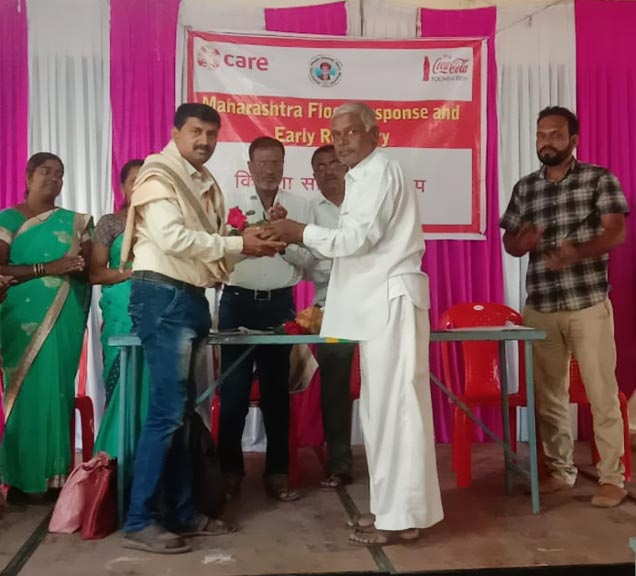Reaching out marginalised households for early recovery assistance during the floods in Maharashtra
Maharashtra
Maharashtra witnessed very heavy rains in the second week of August’ 2019. This resulted in flood conditions across various districts affecting lakhs of people, resulting in crop losses, affecting farmlands, damage to kuchha houses, damage to roads connecting villages to block/ district headquarters, power failure affecting piped water supply and submergence of hand pumps.
Sangli and Kolhapur were two of the worst affected districts by floods. People had returned to their villages and there was an immediate need for hygiene items and dry ration items amidst the flood affected households as it would take a couple of days to weeks before they got their house in order. Household items had been washed away, women and girls had no access to sanitary provisions.
Our Activities
CARE India covered the worst affected households that were marginalised and excluded. They were targeted for early recovery assistance with the following considerations:
- Marginalised (Dalit and minority households), extremely poor communities with low coping capacity who were severely affected by floods and had suffered damage to their houses.
- From amongst the worst affected, CARE focused on single women headed households, households having pregnant and lactating mothers, persons with disabilities, and people from socially excluded tribes and Dalit communities.
- We facilitated the formation and enhancement of SMCs.





